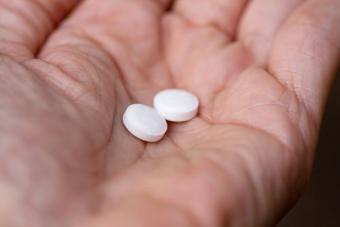Oncology Marketing & Market Access USA
Understand value, influence stakeholders, deliver reimbursement.
Cancer Sufferers Could Benefit from Treatment-Free Periods
Cancer sufferers may well benefit from treatment-free periods. This is the finding of a recent study which has some potentially significant implications for the pharma industry.

A study published in the journal Nature this week highlights how research on mice with skin cancer has shown that by introducing medication-free spells to some cancer treatments patients may live for longer. Through their work modelling drug resistance in melanoma, the researchers have gained important insights into potential opportunities to forestall medication resistance.
Completed by a collaborative team of scientists at the University of California, San Francisco and University Hospital Zurich, in Switzerland, they were looking at how melanoma cells developed a resistance to the drug vemurafenib. They wanted to better understand how the pharmaceuticals delayed tumour progress in the short-term but had little effect over the longer-term.
The BBC reported this week that the scientists have shown how skin tumours were observed to be dependent upon pharmaceuticals to survive. The scientists used this knowledge to test a new way of prescribing the medication. Instead of giving the drug every day, the mice were given vemurafenib for four weeks and then had a two week break before commencing again. After withdrawing the treatments they observed saw that the tumours actually shrunk.
Professor Mark Middleton, director of Cancer Research UK's Experimental Cancer Medicine Centre in Oxford told the BBC that this idea still needs to be tested in the clinic, but that the results suggest how a new treatment approach may well be highly beneficial to patients and their families. In addition, he says that it holds the potential to reduce pharmaceutical costs for the cancer treatment sector: "It also offers the possibility of more cost effective treatment, with fewer side effects”, because patients would spend some of the time off from their medication.
Efim Guzik, professor of cancer biology at University of California, San Francisco observes: “Remarkably, intermittent dosing with vemurafenib prolonged the lives of mice with drug-resistant melanoma tumours”. He believes that their work has opened the door to help understand more about the mechanisms of resistance to pharmaceuticals and enable them to find a way to “enhance the durability of the drug response".
According to Professor Richard Marais, from the Paterson Institute for Cancer Research in Manchester, the findings are "very compelling" and he believes that they suggest a way to respond to evolving drug resistance in melanoma patients by existing drugs rather than having to develop new pharmaceuticals.
Oncology Marketing & Market Access USA
Understand value, influence stakeholders, deliver reimbursement.
